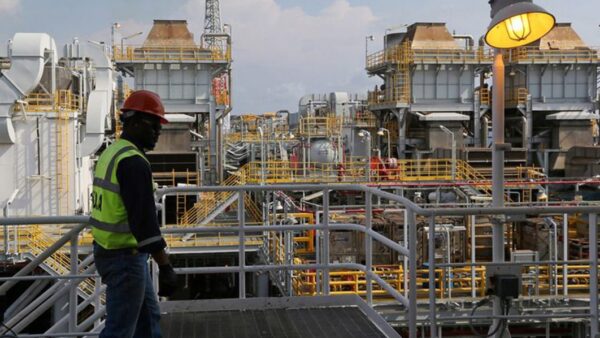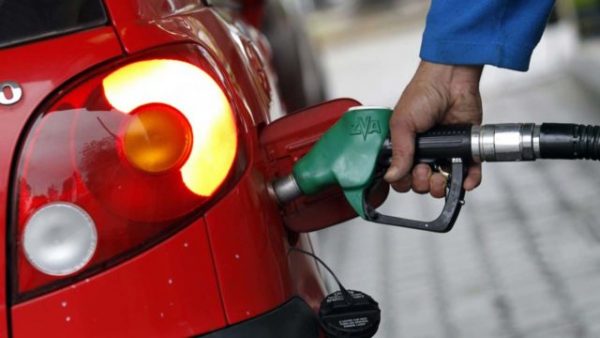Nigeria’s oil production threatened as operators shut wells over rising theft
The Nigerian Upstream Petroleum Regulatory Commission (NUPRC) has expressed concerns about the country’s production capacity, citing cases of deliberate shut of oil wells and pipelines by operators who are trying to deal with theft.
According to the NUPRC, the country’s level of crude oil theft is estimated at a daily average of 108,000 barrels in 2022.
According to the NUPRC Chief Executive Officer, Gbenga Komolafe, the effect of the level of theft has resulted in the declaration of force majeure at Bonny Oil & Gas Terminal (BOGT) and shut-in of wells from fields evacuating through the Nembe Creek Trunk Line (NCTL) and the Trans Niger Pipeline (TNP), noting that similar trend has continued in 2022.
Komolafe, at the Lagos Chamber of Commerce and Industry (LCCI) public-private dialogue on crude oil theft and artisanal modular refineries, said the monumental scale of losses arising from crude oil theft had created a hostile environment and disincentive to investors in the Nigerian upstream oil sector and magnitude of divestments in the industry.
He explained further that many operators had undertaken deliberate shut of wells, facilities and pipelines, which had further exacerbated the low production scenario.
“It is instructive to note that the above challenges have also impacted gas production, both for domestic utilisation and export,” he added.
“It is worthy to state that an unprecedented level of theft estimated at a daily average of 103,000 barrels was recorded in the year 2021 and 108,000 barrels in 2022,” he stressed.
He added: “Consequently, only 58 per cent of the technical rate was achieved in 2021 and similar performance has continued in 2022 hence the need for more concerted efforts across all quarters to stem the tide.”
He pointed out that unfortunately, only 132 million barrels of oil was received at the terminals, indicating that over nine million barrels of oil was lost to crude oil theft, amounting to a loss of one billion dollars in the first quarter of 2022.
“Apart from the negative impact of production and associated revenue losses, other challenges of oil theft include threat to national security, erosion of investor’s confidence, unemployment and environmental hazards,” he stated.
The NUPRC boss added that there are ongoing efforts to enable the industry to deliver government’s production target of three million barrels daily in three years, noting that the commission had developed some key initiatives aimed at reducing the menace to the barest minimum.
“A roadmap for tackling the insecurity challenges in the industry, identifying and implementing areas of collaboration between government and operators in ensuring that operators realize their full production potentials,” he assured.
He said there is a massive collaboration with the top civil echelon of the Nigerian security forces for a robust security that ensures provisions of adequate security.
He advocated a refinery regulation in terms of establishment of more modular refineries, adding that the activities of artisans in crude oil are done outside the ambit of the law and absolutely below acceptable minimum standards of technology in the 21st century.
He said such activities must be curbed for the preservation of economic, health and safety of affected communities, as high levels of risks would be recorded should they be continually indulged.
“Activities of artisans should better be engaged through the establishment of modular refineries,” he advised. Earlier, the president, LCCI, Asiwaju Michael Olawale-Cole, said in recent years, Nigeria has had to battle with dwindling revenue, security challenges, weak infrastructure, rising inflation, high cost of production, and a burdening and unsustainable fuel subsidy.
He noted that the chamber is concerned about the myriads of problems that all have a revenue connection.
“Crude oil theft has taken a worrisome dimension, spiking production costs to $32 a barrel, losses from pipeline vandalisation and theft are overwhelming International Oil Companies (IOCs). Several indigenous oil firms contend with rising operational expenses driven mostly by personnel, maintenance, and security costs.
“There are also concerns about the culpability of the nation’s security agencies, noting that barges of oil cannot be stolen and moved on the coastal waters without the collaboration of some powerful stakeholders,” he added.
He said the menace of oil theft has become a national disaster and a critical threat to the nation’s revenue base, stressing that various reports confirm that the Bonny Terminal Network, Forcados Terminal Network, and Brass Terminal Network are major routes for this organized crime.
The LCCI president said the Chamber has consistently advocated the removal of fuel subsidies and full deregulation of the petroleum downstream sector to attract required investments into the sector.
“No investor wants to invest in an industry where they cannot even recover their cost of production. While we expect some respite from the commencement of commercial private sector refining and modular refineries, we call on the regulators to ensure a conducive business environment that supports these investments coming on stream soon,” he said.







